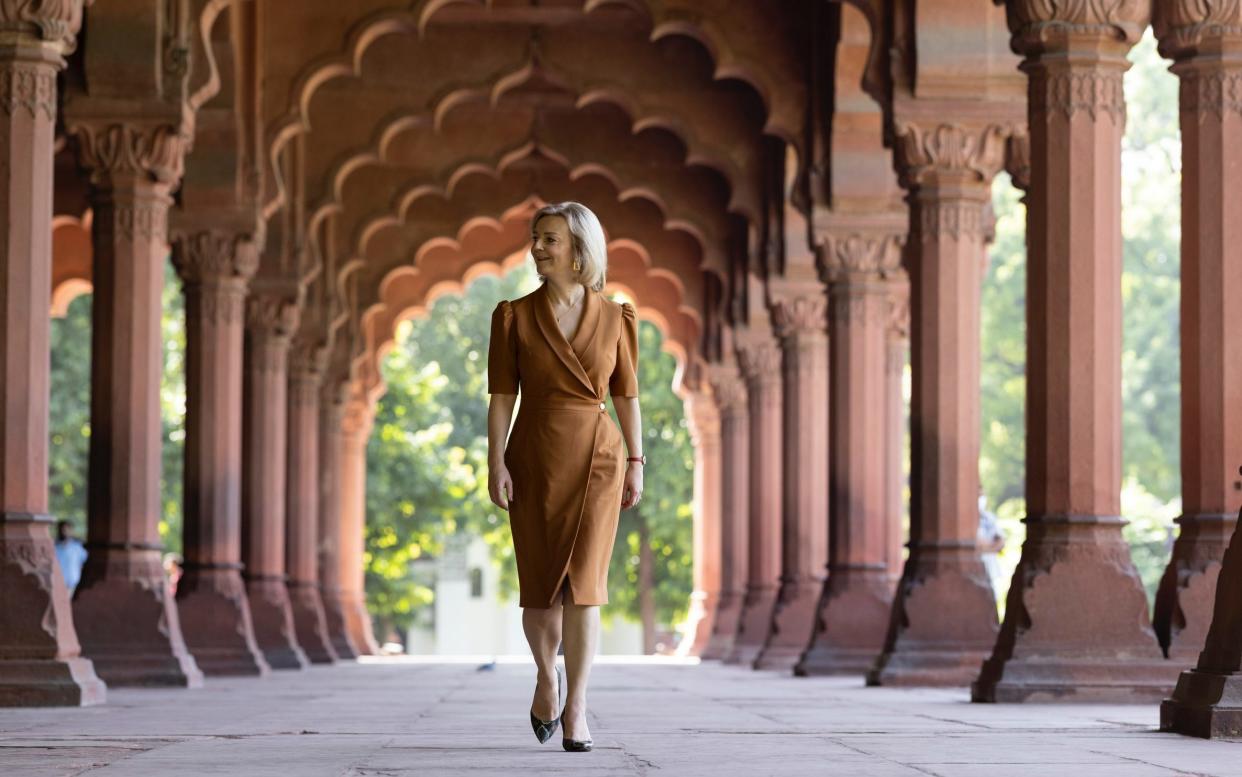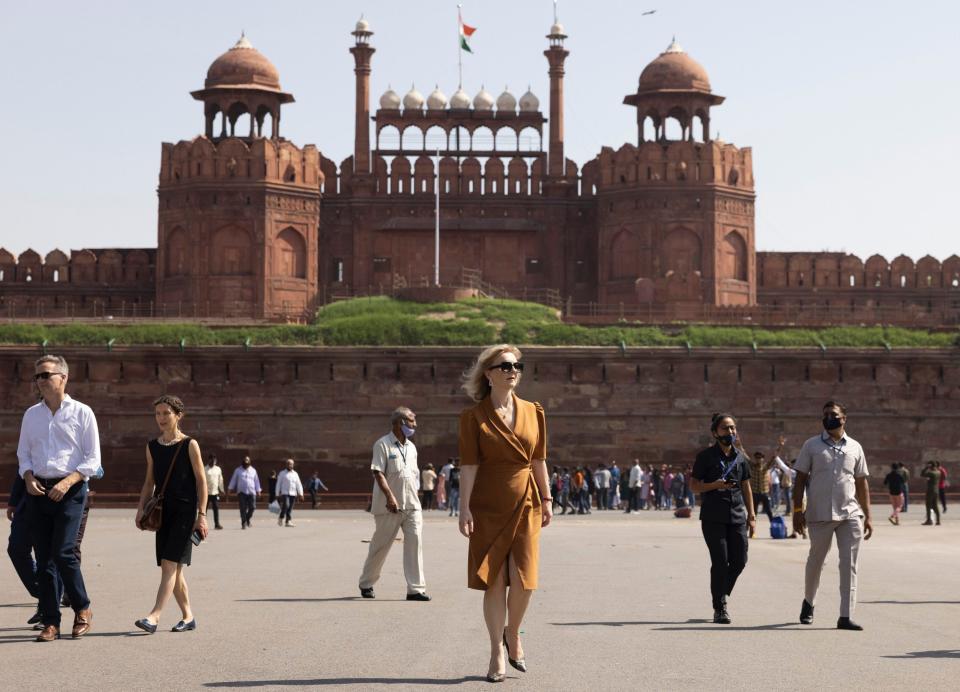Liz Truss: Britain cannot be dependent on China

Britain must not become “dependent” on China and critical national infrastructure, such as nuclear power plants, should be built only with “like-minded” partners, the Foreign Secretary has warned.
In an interview with The Telegraph, Liz Truss indicates Beijing-controlled companies should be excluded from contracts to build Sizewell C, saying joint work on sensitive projects should be done only with nations that have a “bond of trust” with the UK.
The comments mark her out as one of the Cabinet’s more ardent China sceptics, coming just days after Boris Johnson said he was not a “Sinophobe” and would not “pitchfork away” Chinese investment.
Ms Truss also names cyber security, artificial intelligence, quantum technology and 5G technology as areas that involvement of Chinese companies should be treated with caution.
She references Margaret Thatcher’s hardline stance in the Cold War to back up her argument, saying: “Putting the positive case for freedom and democracy really, really changed history.”
The remarks throw into doubt plans by the Chinese state-owned company China General Nuclear Power Group (CGN) to construct 20 per cent of Sizewell C, a proposed nuclear plant in Suffolk.
Taking a tough stance

Meanwhile, there was confusion over China in Washington as Joe Biden, the US president, suggested the US would defend Taiwan if Beijing attacked, only for the White House to row back later the same day.
In the past half a decade, the UK political climate has turned colder towards China, with critics in the Tory back benches becoming more vocal as Beijing’s world influence rises.
The Prime Minister has tried a two-track approach, keeping trade open while also calling out human rights violations and scaling back Chinese involvement in 5G networks.
Ms Truss, promoted to Foreign Secretary in a reshuffle last month and tipped by colleagues as a future leader, outlined her tough approach to China on Friday during a trip to India.
“The way I would put it is that, of course, we trade with China. It’s an important trading partner of the UK. But it’s important that we don’t become strategically dependent,” she said.
The search for ‘like-minded partners’

Ms Truss talked about the hope of building “a network of liberty around the world with like-minded partners” through economic ties to counter hostile countries.
One challenge in London-Beijing relations is UK nuclear power, which Mr Johnson wants to grow to hit his decarbonising targets and in which China has traditionally played a key role. CGN helped build the Hinkley Point C plant in Somerset and is working on plans for Sizewell C.
Asked if she did not want to see Chinese state-owned companies involved in UK nuclear power plants going forward, Ms Truss appeared to urge caution.
“I’d go back to the broader comments I’ve made about diversifying supply,” she said. “I think it’s very important that we don’t become strategically dependent and I think it’s important that we make sure that we’re working, particularly in areas of critical national infrastructure, with reliable partners.”
Asked a second time if it was fair to say she was against Chinese state-owned companies being involved in any new nuclear plants, the Foreign Secretary gave a similar response: “We are making sure, in all of our policy positions, that we are able to work with like-minded partners on key strategic areas.”
The future of Sizewell C

CGN has an agreement to construct 20 per cent of Sizewell C if the project is approved and expressed interest in building its own nuclear power plant at Bradwell-on-Sea, Essex.
Any decision on the involvement of Chinese companies in major UK infrastructure projects would likely be taken by the Prime Minister, in consultation with other relevant cabinet ministers.
The Government has pledged to announce financing for one major new nuclear power plant before the next election, due in May 2024.
Whitehall insiders have said Sizewell C is the frontrunner to win the funding, but it is unclear what impact blocking CGN’s involvement would have on the plan.
UK-India 5G plans

Ms Truss also announced £1.6 million for joint work between the UK and India to encourage new entrants into 5G technology markets.
It will be seen as a deliberate attempt to make sure the UK is never again reliant on Huawei, the Chinese telecoms company whose involvement in the UK’s 5G network caused controversy.
Ms Truss said: “It is very important that we don’t become strategically dependent on high-risk vendors in this space. There are other areas like quantum, artificial intelligence, cyber security where we need to make sure the partners we’re innovating with are reliable and there is a bond of trust there.”
Ms Truss’s visit to India was part of a four-day diplomatic tour that saw her also visit Saudi Arabia and Qatar. It follows visits to the US and Mexico last month.
The first Tory woman to become Foreign Secretary, she previously held the Cabinet roles of international trade secretary, chief secretary to the Treasury, justice secretary and environment secretary.

